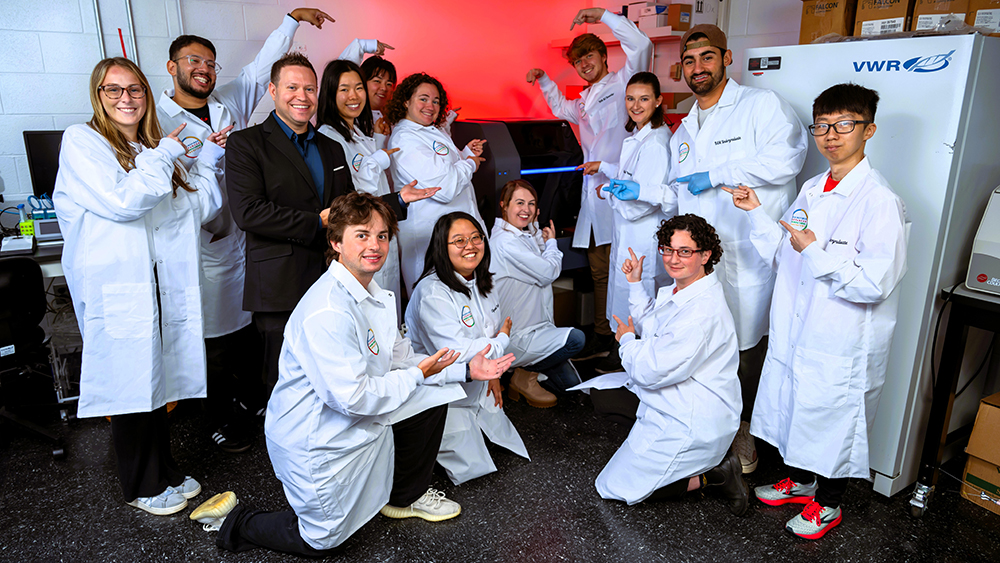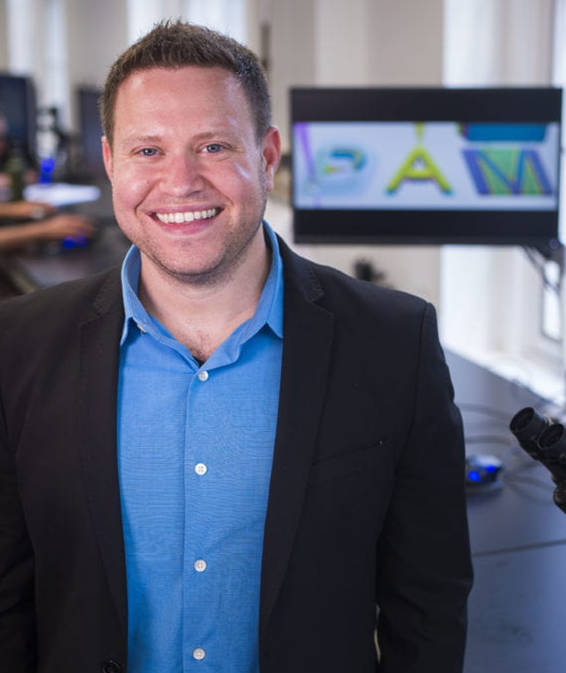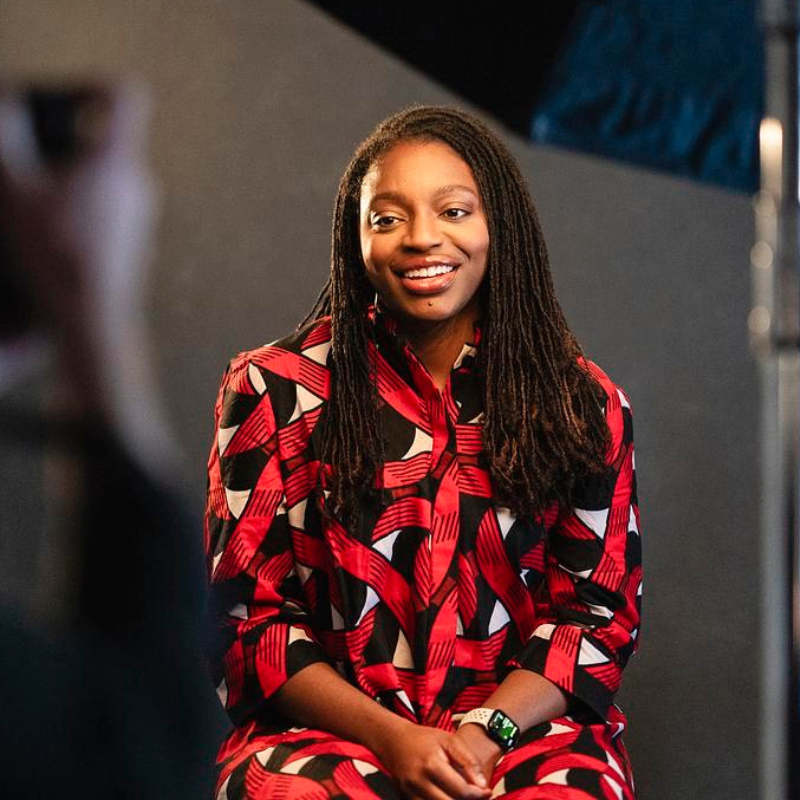News Story
State-of-the-Art 3D Nanoprinter Now at UMD

Team members in Associate Professor Ryan Sochol’s Bioinspired Advanced Manufacturing Laboratory pose with their newly acquired 3D nanoprinter.
Associate Professor Ryan Sochol’s Bioinspired Advanced Manufacturing Laboratory has just installed a brand-new 3D micro/nanoprinter. The University of Maryland (UMD) is now one of the very first U.S. academic institutions to acquire this bleeding-edge technology—and the only one in the Mid-Atlantic region. The closest comparable system is at the Massachusetts Institute of Technology.
The $650,000 3D printer acquisition was made possible through the Data Driven Engineering Research (DataDrivER) program—an $80 million cooperative agreement awarded by the U.S. Army Research Laboratory and spearheaded by Don Woodbury—along with the generous support of the late Professor Emeritus Davinder Anand and his Center for Engineering Concepts Development as well as the A. James Clark School of Engineering.
The UpNano NanoOne 1000 3D Microfabrication System uses a process called "Two-Photon Direct Laser Writing" to rapidly print 3D parts with resolutions down to 100 nanometers—nearly 100 times smaller than a red blood cell—yet with build sizes into the centimeter range thanks to its powerful 1,000-Watt laser.
Because Sochol’s group is a Maryland NanoCenter Partner Lab, anyone with a NanoCenter membership—available not only to those at UMD, but also to external researchers from academia, industry, and federal labs—can gain access to the new 3D printer.
Sochol, along with Mark Fuge, a former UMD faculty member and current professor at ETH Zurich, will be working with their collaborators at ARL to harness the new system for the DataDrivER program. Sochol and Fuge have worked together often to synergize their respective 3D printing and machine learning expertise, including on their current $2.7 million National Institutes of Health (NIH) grant developing soft microrobotic systems for minimally invasive neurosurgery.
"The University of Maryland has long been a leader in pioneering Two-Photon Direct Laser Writing for a wide range of applications," Sochol said. "And now, with this next-generation 3D nanoprinter, we’re going to push the boundaries of what is possible to enable fundamental science, applied research, and commercial translation."
Sochol is also supported by NIH Small Business Technology Transfer and Maryland Industrial Partnership grants in collaboration with start-up companies, including AkriVita and InfraTrac, aimed at harnessing 3D nanoprinting for a variety of biomedical applications.
Sochol’s pioneering work in additive manufacturing has led to him receiving the National Science Foundation CAREER Award and the Early Career Award from the Institute of Physics Journal of Micromechanics and Microengineering, being recognized as a Rising Star in Advanced Materials Technologies, and will soon be honored as an American Society of Mechanical Engineering Rising Star at the International Mechanical Engineering Congress & Exposition in November 2024. Sochol's research and education activities have garnered international media coverage, namely for his group’s soft robotic hand that beat the first level of Nintendo’s Super Mario Bros as well as his "Legend of Zelda"-inspired engineering course.
In addition to Sochol’s ME appointment, he is a Fischell Institute Fellow within the Robert E. Fischell Institute for Biomedical Devices, a member of the executive committee of the Maryland Robotics Center, and an affiliate faculty member of both the Fischell Department of Bioengineering and the Institute for Systems Research.
Published October 8, 2024









